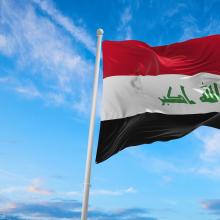August 23, 2022

Facebook Headquarters, Menlo Park © Jitze Couperus, licensed under CC BY 2.0
The undersigned civil society organizations working in Arabic-speaking countries demand the immediate release of Meta’s India human rights impact assessment (HRIA) and BSR’s independent review of Meta’s content moderation in Palestine. Meta contracted with BSR, a third-party assessor, “to conduct a thorough examination to determine whether Facebook’s content moderation in Arabic and Hebrew, including its use of automation, have been applied without bias,” and promised to release the report “in the first quarter of 2022.”
Meta released its first human rights report last month, and it's disappointing, to say the least.[1] Many in civil society were intrigued, if not exactly hopeful, when Meta created a human rights team. We hoped it meant the company would start to take accountability seriously, and provide an easy path for us to engage with the right people to implement meaningful changes based on the feedback we provided. We were also concerned that Meta would use its creation of a human rights team to evade responsibility, whitewash bad behavior, and sidetrack human rights advocates seeking to engage with decision-makers who can implement rights-respecting policy, enforcement, and engineering changes. Unfortunately, our fears appear to have been justified.
We are concerned that this report sets many dangerous precedents, the most concerning of which is Meta's treatment of the Human Rights Impact Assessment (HRIA) on India. This does not bode well for the independent review of Palestinian content moderation. As organizations from Arabic-speaking countries that have routinely had difficulties getting Meta to protect and respect human rights, we stand in solidarity with Indian civil society. We understand what it is like to see material and accounts from human rights defenders removed, while seeing incitement to violence left up. We also share the frustration of spending innumerable hours engaging with Meta, only to see our advice either ignored, or attributed to the Oversight Board or other parties. Much like Meta’s failure to release the India HRIA, the release of the independent review of Meta’s actions in Palestine has been delayed twice now. We are concerned that Meta’s failure to release the India report will be repeated in Palestine. We call on Meta to release both the India HRIA and the Palestine independent review in full immediately, and to commit to better practices in all independent reviews and human rights due diligence going forward.
We do not accept Meta's lackluster and defensive summary of the India HRIA, nor even its description of how the HRIA came about. The report says:
"In 2019, civil society groups published several reports criticizing Facebook content policy rules and content moderation processes in India. Using the guidance of the UNGPs, Meta initiated a human rights due diligence project to identify and mitigate potential human rights risks."
This ignores the actual timeline for the HRIA, which did not start until 2020 following pressure created by the media through several articles by the Wall Street Journal revealing the bias at the company's India office. We have also had to rely on media attention to get action in Palestine and elsewhere in the Arabic-speaking world. Furthermore, Meta did not commit to an independent review until it was recommended by the Oversight Board, despite the fact that civil society had already called for it as part of the stop silencing Palestine campaign.
Meta's treatment of the India HRIA cannot become standard practice. Meta has claimed that the report cannot be released due to “security concerns.” The report also has a disclaimer that " Meta’s publication of this summary, and its response thereto, cannot be construed as admission, agreement with, or acceptance of any of the findings, conclusions, opinions or viewpoints identified by Foley Hoag, or the methodology that was employed to reach such findings, conclusions, opinions or viewpoints." The security of their staff is important. So is the security and safety of marginalised populations. Meta made the decision to pursue the Indian market and has to take responsibility for that decision even if that means re-assessing how it engages in the market, or face legal liability for its failure to prevent the spread of content directly linked to offline harm. India will certainly not be the last place where a HRIA reveals behavior that could subject Meta staff to government targeting or legal liability.
The labor of civil society to call attention to Meta’s failures cannot be ignored. Meta must do better. Therefore, we are calling for the following actions from Meta:
- Publicly release, without further delay, the full and unedited report for Palestine that includes all of BSR's findings and recommendations.
- Release the India human rights impact assessment with all of Foley Hoag’s findings and recommendations, and explain associated security concerns in greater detail to Indian civil society
- For both Palestine and India, and for all HRIAs and independent reviews going forward, give the civil society organizations that contribute to the reports the ability to review all findings and recommendations, even those that cannot be made public.
- Going forward, when Meta contracts with companies or law firms to conduct independent reviews, HRIAs, or other forms of due diligence they must make public the terms of Meta’s engagement with the third party conducting the audit, in particular who has the authority to review and release the report.
Signed,
7amleh
Access Now
Democracy for the Arab World Now (DAWN)
Electronic Frontier Foundation
Mnemonic
MENA Rights Group
SMEX
The Palestine Institute for Public Diplomacy (thePIPD)
US Campaign for Palestinian Rights
Individuals
Abir Kopty, independent
Bissan Fakih, independent
Mahmoud Ghazayel, independent
Raya Sharbain, independent
Rima Sghaier, TIMEP fellow
Shakeeb Al-Jabri, independent
[1] https://about.fb.com/wp-content/uploads/2022/07/Meta_Human-Rights-Report-July-2022.pdf






